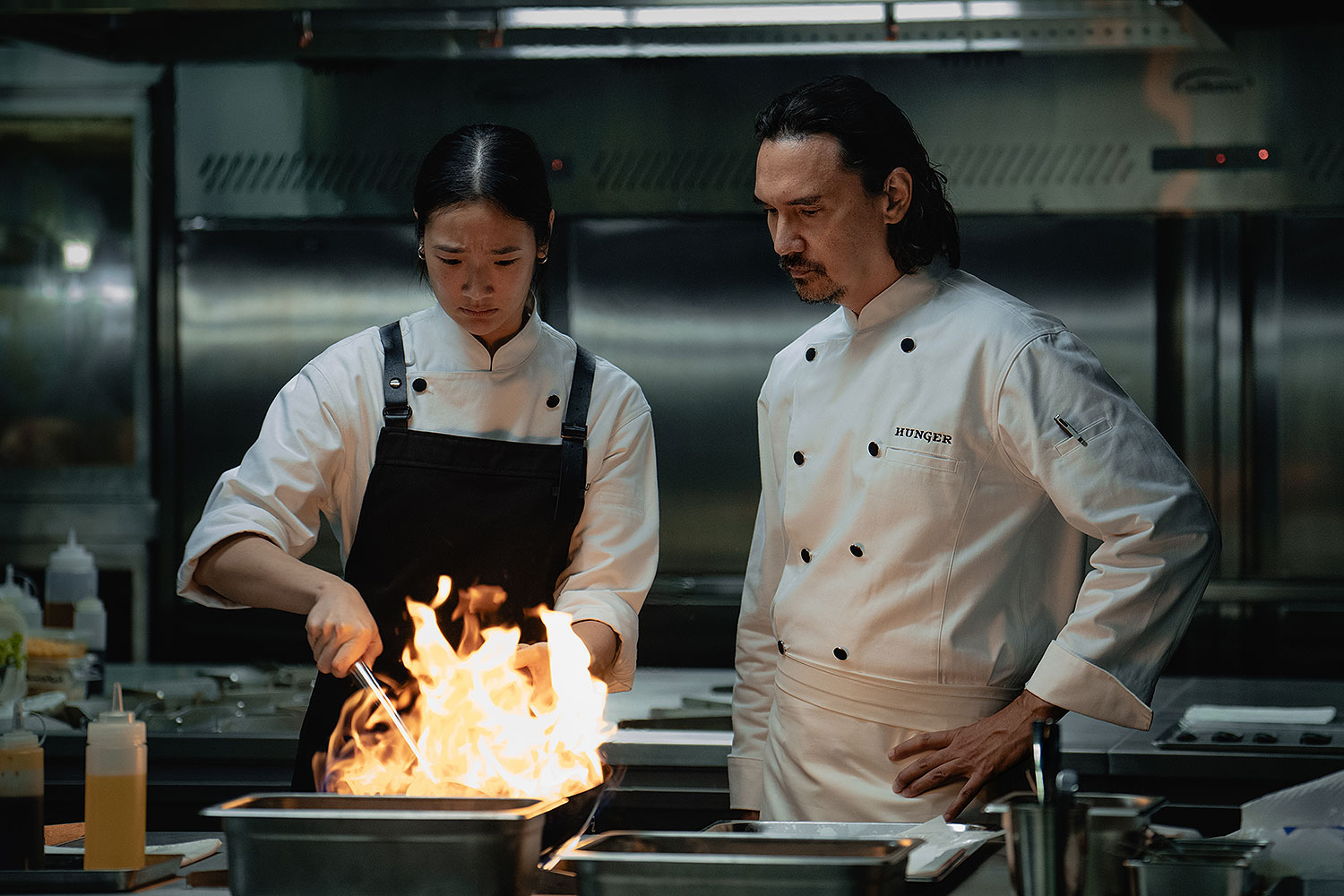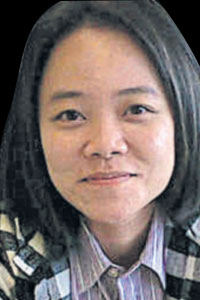
Food -- how it is prepared and consumed -- can be a reflection of social status. A commonly available ingredient cooked in lower- or middle-class kitchens can be seen as mediocre, but the same thing prepared by a renowned chef and served in a star-studded restaurant can be a symbol of wealth.
Despite the criticism and negative comments online, Netflix's new Thai film Hunger is a clear example of how food can reflect social levels. Oil -- the protagonist -- is a young woman who inherits a roadside noodle restaurant from her father. One of the shop's most popular dishes is stir-fried noodles, or pad see ew, which costs around 30 baht. That's a price that anyone can afford.
Later in the film, Oil -- driven by her hunger for fame -- opens a fine-dining restaurant and serves a deconstructed version of pad see ew which becomes popular among people who can afford to book a table and pay for the dish.
One dish can be interpreted differently based on the context in which it is prepared, served and consumed.
The subject of food as a marker of social well-being became a hot debate recently when a Facebook blogger pointed out pro-poor narratives from the grade-five textbook Pasa Patee which contains a reading exercise telling the story of Yai Bua, a girl from a privileged background whose perspective on life changes after she meets her orphan friend Khao Poon.
In the textbook, Yai Bua is upset that her parents do not agree to buy her a new smartphone. So later when she meets Khao Poon who invites her to see the orphanage, her attitude towards life changes.
The problematic part of the story is when kids at the orphanage share a meal which includes stir-fried water spinach. Everyone is also given half a boiled egg to enjoy with a plate of rice and sprinkles of fish sauce.
This specific Pasa Patee chapter was criticised as romanticising poverty and malnutrition. Others say it encourages children to give up on trying for a better quality of life.
There are a number of movies where food is presented as a differentiator of social status. In Netflix's The Glory, hardboiled eggs and Korean onigiri (triangle rice balls) are a symbol of the mediocre lives of the middle class.
In The Platform, Spanish director Galder Gaztelu-Urrutia explores the subject of wealth and inequality through his projection of a dirty skyscraper-like prison with a large void in the middle. The platform -- on which foods are all served -- is lowered down the void and begins at the top with all the fine dishes including lobster, rare meats, glistening vegetables and beautiful cakes. People at the top eat the freshly served versions of all these foods. When the platform lowers and stops briefly at each floor, the people below eat scraps -- or even starve.
Like it or not, how food is consumed has always been a symbol of wealth. And it has been for generations. But when it comes to children, food should mean only one thing -- a material for growth and development.
Despite being fictional, the boiled egg in the Pasa Patee textbook is a reminder of a 2018 incident when students at Ban Tha Mai School in Surat Thani province were served khanom jeen (fermented rice noodles) with sprinkles of fish sauce as a school lunch. After a complaint was filed by parents through the local education office, the school director was jailed for allowing low-nutrition meals under the state-run free lunch programme.
In the following year, schoolchildren in Prachin Buri province were reported to have been served rotten eggs in phalo soup as a school lunch. In the same year, primary pupils in a Nakhon Pathom school were served a very tiny portion of lunch -- five small slices of fried chicken on top of a tiny amount of rice, a small drop of ketchup and a piece of guava -- which could probably be finished in three spoonfuls.
These incidents that happened in real life are more worrisome than children enjoying boiled eggs in the Pasa Patee reading exercise.
For children, food should not be used to differentiate between rich and poor. Food should only serve as energy for activity, growth and all functions of the body. Food should keep children warm and balanced. Food should enable them to grow -- physically, intellectually and emotionally.
So let's just fix the reality and let fiction remain as it is.
Arusa Pisuthipan is the editor of the Life section of the Bangkok Post.
